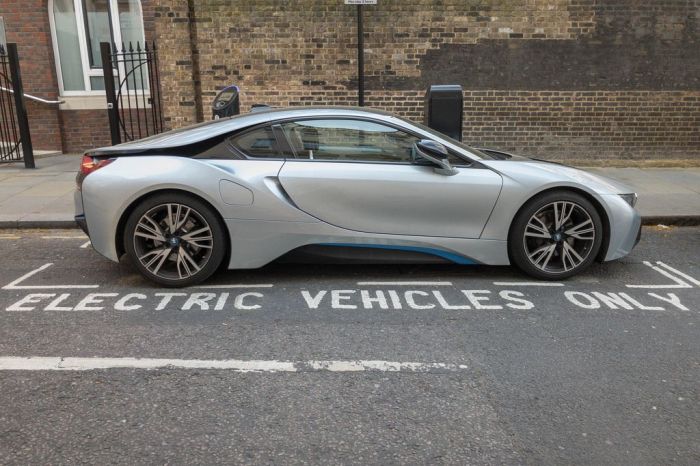Electric car reviews 2025 kick off an exciting journey into the evolving world of electric vehicles. As we step into this new year, the landscape of electric cars is not just changing; it’s revolutionizing how we think about transportation. With advancements in battery technology and a wider variety of models than ever before, these cars are becoming more accessible and appealing. From performance metrics to environmental impacts, we’ll explore what makes the electric vehicles of 2025 a game-changer for consumers and the planet alike.
With a focus on the latest performance evaluations, consumer preferences, and technological innovations, this overview will provide you with a comprehensive understanding of what to expect from electric cars in the coming year. Whether you’re eager to know how different models stack up in speed and range or the latest safety features designed to protect drivers and passengers, we’ve got you covered.
Overview of Electric Cars in 2025
As we step into 2025, the electric vehicle (EV) landscape has transformed significantly from just a few years ago. With advancements in technology and increasing consumer acceptance, electric cars are no longer a niche market but a dominant force in the automotive industry. The shift towards sustainability has fostered a variety of electric models that cater to diverse consumer needs.
The current state of electric vehicles showcases a range of options from compact cars to SUVs, reflecting a trend towards versatility and efficiency. Battery technology has made remarkable strides, with solid-state batteries and faster-charging solutions becoming mainstream. As a result, consumers benefit from longer ranges and shorter charging times, making electric cars more practical than ever.
Performance Evaluations, Electric car reviews 2025
Performance metrics have become a key selling point for electric vehicles in 2025. Modern electric cars boast impressive acceleration and top speeds that rival traditional gas-powered vehicles.
- Acceleration: Many popular models can reach 0-60 mph in under 3 seconds, showcasing the instantaneous torque that electric motors provide.
- Top Speeds: Leading brands have achieved top speeds exceeding 150 mph, pushing the boundaries of what electric cars can achieve on the road.
- Range: Most electric vehicles now offer ranges of 300 miles or more on a single charge, with many brands innovating to extend this further.
- Charging Speeds: Fast-charging stations can now replenish battery capacity to 80% in as little as 30 minutes, providing convenience for long-distance travel.
Environmental Impact
Electric vehicles are making significant strides toward sustainability in 2025. They offer a substantial reduction in carbon footprint compared to traditional gasoline vehicles, primarily due to their zero-emission operation.
- Carbon Footprint: Studies indicate that electric cars can reduce greenhouse gas emissions by up to 50% over their lifetime compared to internal combustion engine vehicles.
- Urban Pollution: In urban areas, the widespread adoption of electric cars contributes to lower levels of air pollutants, promoting better public health.
- Renewable Energy Integration: Many EVs are now paired with renewable energy sources, enhancing their sustainability credentials further.
Consumer Preferences
The electric car market in 2025 reflects a shift in consumer preferences, driven by various factors influencing buyer decisions.
- Price Sensitivity: While the upfront cost of electric vehicles has decreased, many consumers are still influenced by the price-to-value ratio.
- Brand Loyalty: Established automobile brands are seeing a rise in consumer trust, while new entrants challenge traditional norms.
- Feature Demand: Buyers increasingly prioritize features like advanced safety technologies, connectivity options, and luxury amenities in their EV choices.
- Demographics: Younger buyers are leading the charge in EV adoption, with a significant percentage of sales coming from millennials and Gen Z consumers.
Safety Features
Safety advancements in electric vehicles have become a top priority by 2025. Many electric models are equipped with cutting-edge safety technologies that enhance driver and passenger protection.
- Safety Ratings: Leading electric car models often receive top safety ratings from organizations such as the National Highway Traffic Safety Administration (NHTSA) and the Insurance Institute for Highway Safety (IIHS).
- Advanced Driver Assistance Systems (ADAS): Features such as automatic emergency braking, lane-keeping assistance, and adaptive cruise control are prevalent.
- Crash Avoidance: The design of electric vehicles often incorporates crumple zones and rigid battery cell designs that improve crash safety.
Cost of Ownership

Understanding the cost of owning an electric vehicle in 2025 is crucial for potential buyers.
- Maintenance Costs: Electric vehicles generally incur lower maintenance costs compared to traditional vehicles, as they have fewer moving parts and do not require oil changes.
- Fuel Savings: The cost of charging an electric car is often significantly lower than gasoline, leading to substantial savings over time.
- Government Incentives: Federal and state incentives continue to play a vital role in offsetting the initial purchase price of electric vehicles, further enhancing their affordability.
Technological Innovations

The landscape of technological innovations in electric cars is rapidly evolving in 2025, making them smarter and more efficient.
- Autonomous Driving: Many electric vehicles are equipped with advanced autonomous driving features, making significant strides toward fully self-driving capabilities.
- Smart Technology Integration: Connectivity features, including smartphone integration, real-time traffic updates, and remote vehicle access, are becoming standard.
- Battery Management Systems: Improvements in battery management technologies ensure optimal performance and longevity of battery life.
Market Forecast and Future Trends
The electric vehicle market is poised for exponential growth in the coming years, with several trends shaping its future.
- Increased Production: Major automobile manufacturers are ramping up production of electric models, responding to consumer demand and regulatory pressure.
- Charging Infrastructure Expansion: Investments in charging infrastructure are critical to supporting the growing number of EVs on the road.
- Challenges: Supply chain disruptions and competition among manufacturers may pose challenges, but they also present opportunities for innovation.
- Market Predictions: Analysts forecast that electric vehicles could represent a significant portion of total vehicle sales by the end of the decade, reflecting a substantial shift in consumer behavior.
Final Wrap-Up: Electric Car Reviews 2025

In summary, electric car reviews 2025 highlight not only the advancements in technology and performance but also the shifting consumer attitudes toward electric vehicles. As we look ahead, the integration of autonomous features and the expansion of charging infrastructure promise to make electric cars even more enticing. The future of electric vehicles is bright, and it’s clear that they are here to stay, paving the way for a more sustainable and innovative transportation era.